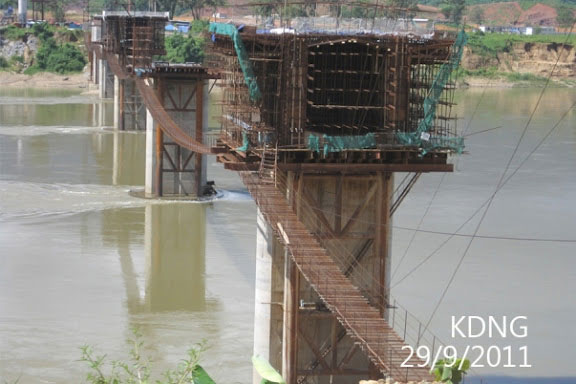Aung San Suu Kyi's National League for Democracy secured a landslide victory in Burma’s recent elections, and the opposition party will make its parliamentary debut in two weeks. Among the many questions the election results are raising is the possible impact they could have on Burma’s relations with its biggest investor – China.
 China has long been a key ally of the Burmese government and, according to official estimates, has already pumped at least $15 billion in investments into Burma.
China has long been a key ally of the Burmese government and, according to official estimates, has already pumped at least $15 billion in investments into Burma.
But, as Burma – which is also known as Myanmar – has begun to enact reforms over the past year, releasing hundreds of political prisoners, holding talks with ethnic minority rebels, and easing censorship, it also appears to be trying to lessen China's influence on its economy.
"The China relationship was clearly a factor in the military government's decision to move toward democracy, but with Aung San Suu Kyi and sort of an opposition group in parliament, I suspect you'll see a lot more discussion about issues like that," Bower said. Ernest Bower is the director of the Southeast Asia Program at the Center for Strategic and International Studies in Washington.
"We know from interviews with Myanmar leaders and the business community that there was a feeling of claustrophobia in the country related to China's dominance," Bower said.
Analysts say President Thein Sein's decision last year to call off the construction of a major Chinese hydropower project in northern Burma because of local opposition was in part an example of the desire to ease China's influence.
Originally, the Myitsone Dam was slated for completion in 2017 and was expected to provide energy-hungry cities in China with power to meet their ever-growing demands. Now, the fate of the project remains uncertain.
David Steinberg, a Burma expert at Georgetown University, says he expects China will continue to play a very important role in Burma's economy, but the Burmese president’s Myitsone Dam decision shows there are limits.
“I think it’s in China’s interest to play its cards very, very carefully. They didn’t on the Myitsone Dam, but they may have learned a lesson. They really didn’t believe that there was public opinion that could change the government in Myanmar, the government’s position. And they have found out that there was in fact that,” Steinberg said.
China should also be concerned, Steinberg says, about the impact too much investment in Burma could have on Burmese national sentiment. He says there have been anti-China riots in the past, and foreign control of the economy has long been a sensitive issue there.
“If they [the Burmese people] feel that the economy is once again under Chinese control, there could be a nationalist reaction. Already there is anti-Chinese sentiment growing in the country, and China recognizes the problem and must be careful,” Steinberg said.
Meanwhile, Burma is looking elsewhere for investment. In recent weeks, Burma has taken steps to loosen regulations for foreign investors in the country. This, Bower says, will not only increase investment opportunities, but will give Burma more options.
"Clearly one of the objectives of the government in opening was to enact economic reforms that would follow the political opening so that countries could bring new technology and capital into the country," Bower said.
Analysts say Burma is very interested in making sure the United States and Europe are involved in that process and that the participation of Asean countries, Japan and Europe is broadened as well. But getting the investment into Burma from the U.S., as well as other countries, remains problematic because of sanctions.



